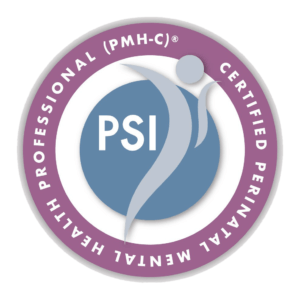
Teens today face unique pressures that can be overwhelming. The pressure to excel academically and keep up with social media norms exposes modern teens to greater stressors. As a result, we are seeing more symptoms of depression in teens.
Studies show depression can start as early as adolescence. In a 2021 study, an estimated 5.0 million youths between the ages of 12 and 17 in the US reported experiencing at least one major depressive episode.
If your teen is experiencing mental health issues, don’t let the symptoms of depression go unnoticed. As a parent, your intervention is crucial in providing the support and care your child needs.
This article is a guide for parents. Let’s discuss the symptoms of depression in teens and where you can seek professional help.
What is Depression in Teens?
Depression is more than sadness. It is a serious mental health condition that can impact a person’s thoughts, feelings, and overall sense of well-being. In teenagers, depression can manifest differently than in adults, making it essential for parents to be aware of its unique characteristics.
Understanding what depression looks like in teens is the first step toward helping them. By being informed, parents can create a supportive environment that encourages open communication and emotional healing.
Symptoms of Depression in Teens
Spotting depression in teenagers can be challenging. Here are some signs that are more common and can help you identify if your teen might be struggling.
- Mood Changes: Look for ongoing feelings of sadness, irritability, or anger that last for weeks or longer. Teens might seem more upset than usual or have frequent mood swings.
- Loss of Interest: If a teen stops enjoying activities they used to like, such as sports, hobbies, or hanging out with friends, it could be a sign of depression.
- Behavior Changes: Noticeable changes in behavior include withdrawing from family and friends, avoiding social interactions, or becoming unusually quiet and distant.
- Sleep Issues: Depression can affect sleep, leading to insomnia or sleeping too much. Teens may also have trouble falling or staying asleep.
- Appetite Changes: Changes in eating habits, such as eating too much or too little, can be a symptom. Weight loss or gain without a clear reason might be involved.
- Energy Levels: Low energy and feeling tired all the time, even after a full night’s sleep, can indicate depression.
- Academic Problems: A drop in school performance, lack of motivation to do homework or trouble concentrating can be related to depression.
- Physical Symptoms: Complaints of frequent headaches, stomachaches, or other unexplained physical issues may also be linked to emotional distress.
- Self-Harm: Behaviors that harm oneself, such as abusing substances and engaging in risky behaviors are a sign of depression.
- Social Media Impact: Excessive use of social media or a noticeable change in online behavior, such as withdrawing from online interactions or becoming overly fixated on appearance and comparisons, can also signal depression. Be aware of whether social media is causing increased stress or worsening mood.
Tips for Parents to Support Their Teens
If you recognize signs of teenage depression, you are in a position to become instrumental in their healing. Here are some practical ways to help your teen through this tough time:
- Foster Open Communication: Create a safe and supportive environment where your teen feels comfortable sharing their feelings. Encourage them to talk openly and listen actively without judging. Communicate to them that their feelings are valid and that they can lean on you for support.
- Monitor Behavior Changes: Keep an eye on any significant changes in your teen’s mood, behavior, or school performance. Be attentive but respectful of their privacy. These changes can help you understand if their struggles might need further attention.
- Promote Healthy Habits: Encourage your teen to engage in activities that support mental and physical health. Suggest regular exercise, a balanced diet, and sufficient sleep. These habits can improve their mood and overall well-being.
- Seek Professional Help: If you notice severe symptoms or if your teen’s condition worsens, seek help from a mental health professional. They can provide appropriate treatment and support tailored to your teen’s needs.
- Be Patient and Understanding: Depression is a difficult journey, and recovery takes time. Be patient with your teen and provide consistent support as they work through their challenges. Your ongoing encouragement can make a big difference.
Professional Treatment for Teenage Depression
While parental support is invaluable, sometimes teens need the help of a mental health professional to manage their depression. A mental health counselor is trained in providing treatment for teens exhibiting symptoms of depression. They can give tools your teen can use to overcome their mental health condition.
A professional diagnosis is the first step in developing an effective depression treatment plan. Talk therapy can help your teen understand their feelings, develop coping strategies, and build resilience. Medication may also be prescribed in certain situations to help manage symptoms more effectively. A lifestyle change is also critical for long-term success.
Teen Depression Treatment Near Me in Phoenix, AZ
Our mental health professionals at My Buoyant Health are experienced in providing mental health counseling to teens. We can do a comprehensive psychiatric evaluation to understand your teen’s mental health needs. Through it all, we provide compassionate guidance and comprehensive services for you and your teen.
To schedule a consultation, call our office today at (602) 510-6582 or use our appointment request form. Together, we can work towards a brighter, healthier future for our teens.




